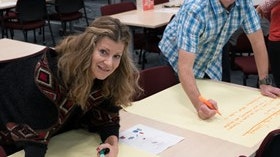Homepage
•
Learning Library
•
Blog
•
This school pays teachers to tackle real-world problems
Expand breadcrumbs
Expand breadcrumbs
- Learning Library
- Blog
- This school pays teachers to tackle real-world problems
- Homepage
- •
- Learning Library
- •
- Blog
- •
- This school pays teachers to tackle real-world problems
This school pays teachers to tackle real-world problems
By Nicole Krueger
September 5, 2018








